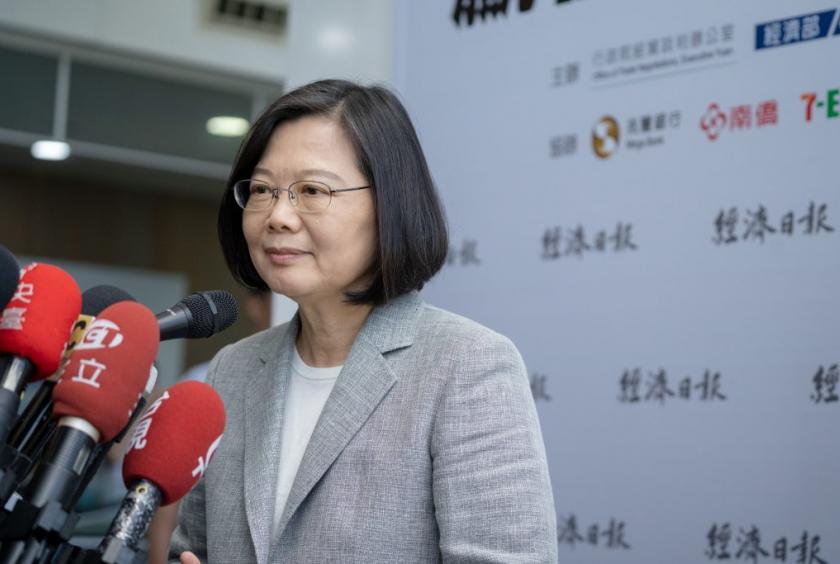TAIPEI (China Post/ANN) — President Tsai Ing-wen said on May 30 that Taiwan’s New Southbound Policy (NSP), aimed at enhancing cooperation with key players in Southeast Asia, South Asia, Australia, and New Zealand, has yielded initial results, CNA reported.
At a forum on the policy, Tsai said the international political situation has changed significantly over the past three years since the policy was launched in 2016.
The increasing geopolitical and geo-economic importance of countries targeted by the NSP has prodded the United States, Japan, South Korea, and India to introduce new strategies in the region, Tsai said, adding that this shows the policy is vision-oriented and forward-looking.
Noting the NSP is an important strategy that promotes a new model of economic development for Taiwan and reduces reliance on a single market, Tsai said she hopes Taiwan will forge more comprehensive and diverse strategic partnerships with NSP target countries through exchanges and cooperation in trade, business, technology, culture, tourism, and education.
The implementation of the policy has gradually shown good results, Tsai said, citing figures that show two-way trade with NSP target countries reached US$100 billion last year, up 22 percent from 2016, while investment by NSP target countries in Taiwan increased by more than 60 percent from 2016 to 2018.
The government has also updated bilateral investment protection agreements with the Philippines and India over the past three years to protect the interests of Taiwanese businesses in those countries, she said.
In addition, revenue made by the top 1,000 overseas Taiwanese businesses in NSP target countries reached NT$3.6 trillion (US$113.84 billion), with their profits breaching NT$100 billion, Tsai said citing figures.
Last year, the number of patients from NSP countries who visited Taiwan for medical treatment exceeded 150,000, accounting for 40 percent of international patients visiting Taiwan, up 50 percent from two years earlier, she added.
The policy has also boosted person-to-person exchanges, Tsai said, noting that the number of travelers from NSP countries to Taiwan rose from 910,000 in 2016 to 1.44 million in 2018, while the number of students and individuals enrolling on training courses from these countries has jumped from 32,000 to 52,000 over the same period.
These results show the NSP is about more than empty talk, the president said, adding that the government will continue to strengthen the implementation of its policy goals to allow Taiwan to play an integral role in future economic development throughout Asia.
By Liao Yu-yang and Evelyn Kao










